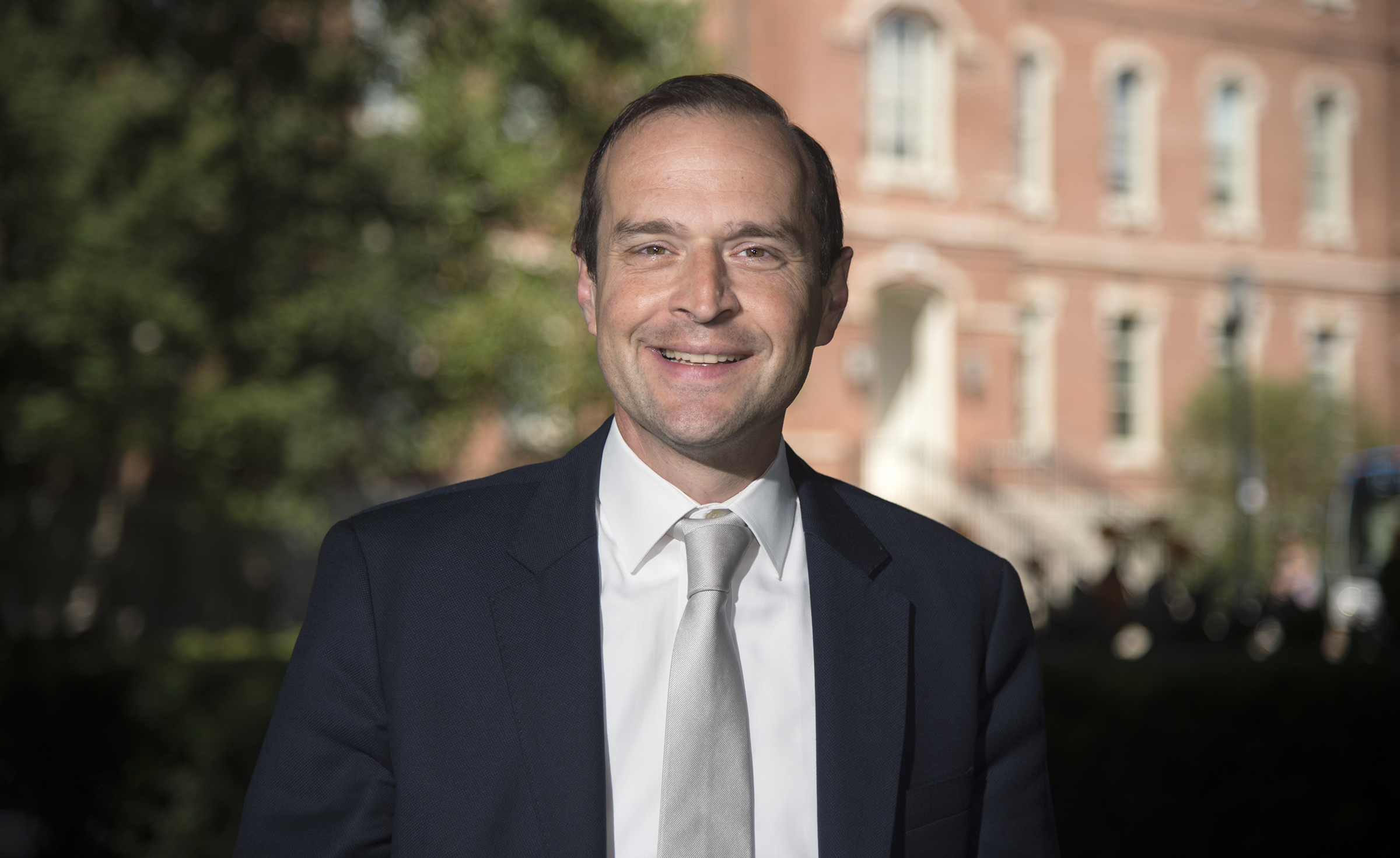Fall 2019 letter from Dean David A. Reingold
Justin S. Morrill Dean of Liberal Arts shares his thoughts with alumni, faculty, and students.

Dear Friends,
It is my pleasure to share this most recent edition of THiNK Magazine with you.
As we conclude Purdue’s sesquicentennial celebration, I am struck by the many areas of connectivity our College has built with colleagues across campus. At first glance, some thought that the Ideas Festival themes — Space, Artificial Intelligence, Health and Longevity, and Sustainability — had little to do with our College. What we saw other the course of these events was quite to the contrary. You will see reflected in this edition’s articles evidence of many interesting connection points with research tied to Purdue’s historic strengths in science, technology, engineering and math (STEM).
Looking across the horizon of higher education, our disciplines, both as general education requirements and fields of study, are ubiquitous. American universities have not traditionally existed without them.
Today, as we look at decreasing enrollments across the liberal arts and projected demographic decreases in the number of prospective college students, the liberal arts are in jeopardy. It is incumbent upon us to find ways to differentiate ourselves from other programs to build and sustain our enrollments. We have done this with programs like Degree in 3, Cornerstone, and Degree+.
Alongside those programs, by virtue of our place at Purdue University, we can define a particular liberal arts experience. Students who would major in history or philosophy, to name just two, can find a different kind of education here.
Given the recognized strengths of this university, our history students can study the impact and evolution of flight and the space age replete with one of the nation’s most relevant and distinctive collections in the Barron Hilton Flight and Space Exploration Archives.
Our Department of Philosophy Head has been part of conversations to create the Data Mine, a campus-wide learning community about data and technology. The Data Mine will engage students from a wide array of majors with the important ways in which data, and understanding its collection and implications, will play a growing role in our personal and professional lives.
I invite you to read this issue and consider the ways in which our College at Purdue presents a unique opportunity to explore questions at the intersection of the liberal arts and STEM.
Sincerely,
David A. Reingold Justin S. Morrill Dean of Liberal Arts